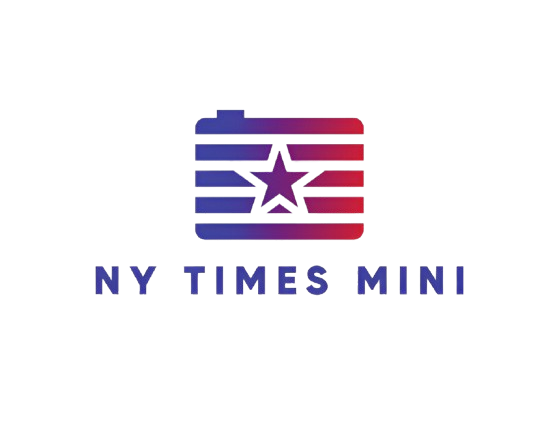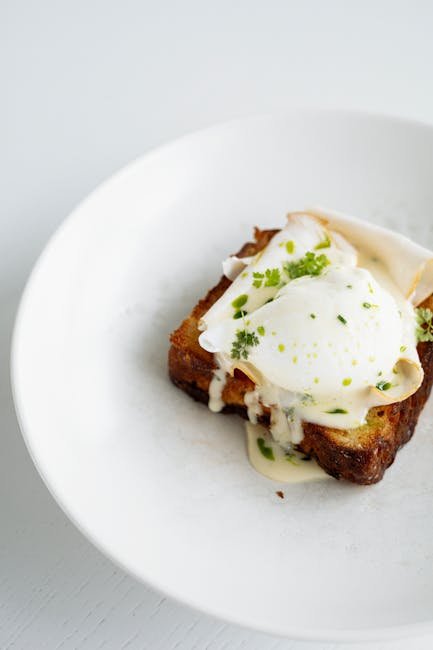
NYT Mini Crossword Answers Today – September 6, 2024
## Table of Contents
The New York Times Mini Crossword is a daily brain teaser that offers a quick and enjoyable mental workout. With its compact 5×5 grid, solvers can tackle the puzzle in just a few minutes, making it a perfect companion during your morning coffee or while waiting for a meeting to start. If you find yourself stuck, don’t worry! Here are the answers from today’s Mini Crossword to help you finish up.
Today’s Across Clues and Answers
When working on the “Across” clues, you’ll go from left to right. Here’s what to expect for today:
1. **Clue:** Pioneering video game in which you slither around and eat apples
– **Answer:** SNAKE
2. **Clue:** Mailing alternative to a home address
– **Answer:** POBOX
3. **Clue:** Grammy winner Hayes
– **Answer:** ISAAC
4. **Clue:** Words on a book’s spine
– **Answer:** TITLE
5. **Clue:** Bona fide
– **Answer:** REAL
Completing these should help you piece together your grid more quickly.
Today’s Down Clues and Answers
Shifting to the “Down” clues, which run vertically from the top to the bottom, you will find these entries:
1. **Clue:** ___ valve (drainage feature on a brass instrument)
– **Answer:** SPIT
2. **Clue:** Respectful denial
– **Answer:** NOSIR
3. **Clue:** Subside
– **Answer:** ABATE
4. **Clue:** Animal whose closest living relative is the wombat
– **Answer:** KOALA
5. **Clue:** Microsoft’s alternative to Google Sheets
– **Answer:** EXCEL
These answers should enable you to fill in the remaining squares you may have missed.
Yesterday’s Mini Crossword Recap
In case you missed the clues from yesterday, they included the following:
**Across Clues:**
– File type for downloadable forms
– **Answer:** PDF
– Catherine of “Beetlejuice”
– **Answer:** OHARA
– Pastry with a 5-Down
– **Answer:** DONUT
– Nostalgic song
– **Answer:** OLDIE
– Left on ___ (still awaiting a text message response)
– **Answer:** READ
**Down Clues:**
– Animal known as a “giant cat bear” in Chinese
– **Answer:** PANDA
– Ancient Celtic priest
– **Answer:** DRUID
– It’s written in the stars
– **Answer:** FATE
– Funk from a dirty sock
– **Answer:** ODOR
– Feature in the middle of a 6-Across
– **Answer:** HOLE
With these insights, you’re one step closer to mastering the NYT Mini Crossword. Happy solving!
Introduction
Overview of NY Times Mini Crossword
The NY Times Mini Crossword is a concise version of the well-known crossword puzzle, offering a refreshing twist for avid players and casual enthusiasts alike. Designed with a 5×5 grid, this daily puzzle invites solvers to tackle a handful of clues that range from clever wordplay to straightforward prompts. Released each day, it features a blend of across and down clues, making it accessible for individuals who may feel intimidated by the larger, more complex crosswords. As a delightful mental exercise, the Mini Crossword caters to all skill levels, allowing users to complete it within a few minutes. Many enjoy it as a quick brain teaser during their morning coffee or as a fun break throughout the day.
Importance of Solving the Mini Crossword
Engaging with the NY Times Mini Crossword can have numerous cognitive benefits. For one, regularly attempting to solve puzzles stimulates the brain, promoting better cognitive function and enhancing vocabulary. The brevity of the Mini Crossword encourages quick thinking and problem-solving skills, making it an excellent daily workout for the mind. Additionally, it fosters a sense of accomplishment upon completion, which can be motivating. This quick challenge can help reduce stress, offering a refreshing pause from busy schedules. Furthermore, it connects people through shared experiences; discussing answers or strategies with friends and family can enhance social bonds. Overall, solving the NY Times Mini Crossword is more than just a pastime; it’s an engaging activity that contributes to mental agility and social interaction.
Key Solutions for Sep 6, 2024
Across Clues
If you’ve been grappling with the NY Times Mini Crossword today, here are the answers to the Across clues that will help you complete your grid seamlessly. The first clue, associated with a pioneering video game where you slither around and eat apples, can be filled in as SNAKE. For the next clue regarding a mailing alternative to a home address, the answer is POBOX. When you encounter the clue about a Grammy winner named Hayes, you’ll want to note that the answer is ISAAC. The title on a book’s spine refers to the word TITLE, while the clue asking for a synonym of ‘bona fide’ leads you to the term REAL.
Down Clues
Now let’s pivot to the Down clues. The first Down clue, related to a drainage feature on a brass instrument, should be solved with the word SPIT. For the polite way to decline an offer, the answer is NOSIR. The word subside can be captured with the term ABATE. As for the animal closely related to the wombat, it leads you to discover the answer KOALA. Lastly, when you are prompted for Microsoft’s alternative to Google Sheets, the solution is EXCEL.
These quick references serve as helpful solutions for your daily crossword experience. If you are looking to enhance your skills and solve the puzzles with greater efficiency in the future, consider consistently engaging with The Mini. It is an excellent way to improve your vocabulary and cognitive speed, while also deriving enjoyment from the clever and quirky clues that the NY Times offers daily. With practice, you may find yourself navigating through the clues almost instinctively, adding to the overall enjoyment of the experience.
Step-by-Step Solving Strategy
Identifying Easy Clues
When you approach the NY Times Mini Crossword, start by scanning the grid for clues that stand out as particularly simple. Look for clues that reference common knowledge or popular culture, as these are often straightforward. For example, clues related to well-known figures, everyday items, or basic concepts can typically be answered quickly. This initial phase allows you to fill in several answers without much effort, immediately boosting your confidence.
As you identify these easy clues, remember to jot them down first. The filled boxes will provide you with valuable letters for adjacent answers, making the solving process much smoother. Focus on horizontal (across) clues first, as they can establish a solid foundation for vertical (down) ones. This strategy of tackling the simplest clues first sets a positive tone for the rest of the game and helps create a mental roadmap for filling in the grid.
Tackling Tricky Clues
Once you’ve filled in what you can easily, shift your focus to the more complex or perplexing clues. It’s essential to approach these with a strategic mindset. Reread the tricky clues and consider the letters you’ve already filled in; they can offer helpful hints to decipher the answer. Pay attention to the wording of the clues; sometimes, a clue can be a pun or require lateral thinking, and recognizing this pattern can lead you to the answer.
If you’re still stuck, don’t hesitate to take a step back and look for connections. Consider related clues that might be solved together. Additionally, don’t overlook the potential for cross-referencing letters to unlock answers. If you believe a certain letter is correct, think about what words typically fit around it. If a clue is particularly challenging, sometimes it can help to take a brief pause and return with fresh eyes, which can lead to those elusive answers.
Moreover, if you find yourself really stumped, consulting a synonym or considering the opposite meaning of certain words can sometimes reveal the solution. This method of breaking down the clues not only aids in the current puzzle but also enhances your problem-solving skills for future crosswords. Embrace the challenge, and enjoy the mental workout that follows as you piece together your answers!
Common Challenges and Tips
Frequent Crossword Pitfalls
As you work through the NY Times Mini Crossword, you may encounter several common pitfalls that can slow your progress. One of the most frequent challenges is overthinking the clues. It’s easy to become fixated on a particular interpretation, leading to frustration when the answer doesn’t seem to fit. Remember that many clues are straightforward, often requiring you to stick to the simplest answer instead of exploring overly complex interpretations. Additionally, misplacing letters can be detrimental. When you guess a letter, double-check its position in the cross-referencing clues. A single incorrect letter can domino into multiple wrong answers that hinder your overall solve. Mistakes in filling out across and down grids often derive from not keeping a sharp eye on previously filled squares. Thus, maintaining accuracy is paramount.
You may also struggle with clues that are puns or rely on wordplay. This requires a different strategy, as lateral thinking is often necessary. Such clues can seem deceivingly easy if you don’t actively consider alternate meanings. Be alert to the possibility that the clue doesn’t directly relate to the answer; it might play on words in a humorous or cryptic way, making it essential to keep your thinking flexible and open.
Expert Tips for Speed and Accuracy
To enhance your solving efficiency, adopt strategies used by expert crossword solvers. One effective tip is to build a “letter bank” in your mind. Quickly jot down answers you know as you go through the clues. These letters will serve as anchors for adjacent answers, allowing you to fill in more of the grid as you progress. Moreover, familiarity with common crossword answers is an advantage. Certain words and names recur often, and recognizing these can save time and effort on more complex clues.
Another key strategy involves learning to “backtrack.” If you hit a wall with a particular clue, temporarily skip it and return with a fresh perspective later. This technique allows subconscious solutions to surface while you focus on other areas of the puzzle. It’s also advantageous to be aware of typical crossword abbreviations and conventions to quickly identify potential answers.
Finally, practice patience. The Mini Crossword is designed for quick play, but rushing can lead to more mistakes. Take a moment to breathe and think through each clue methodically. Embrace the challenge as a mental exercise rather than simply a test of knowledge, and you’ll likely find an enjoyable experience filled with learning opportunities.
Tools and Resources for Solvers
Online Tools
As you dive into the NY Times Mini Crossword, a variety of online tools can significantly enhance your solving experience. Numerous websites provide platforms where you can find daily answers, hints, and even strategies for tackling crossword puzzles. These sites often include forums where enthusiasts share their insights and experiences, making it a collaborative effort. Consider utilizing crossword solvers or word generators where you can input the letters you currently have and receive potential answers based on the patterns you’ve uncovered. This not only saves time but also aids in developing your vocabulary with new words that might come in handy.
Additionally, mobile apps specifically designed for crosswords can give you on-the-go access to puzzles and answers whenever needed. Some applications even feature daily notifications to remind you to complete your crossword, helping you establish a routine and stay consistent in your pursuit of wordplay mastery.
Study Aids
To bolster your crossword-solving skills, look into various study aids that can prepare you for different types of clues you might encounter. Crossword dictionaries are invaluable resources. These books contain an extensive range of words commonly used in crosswords along with their definitions, pigeonholing answers to decipher cryptic clues more easily. Another beneficial resource is a thesaurus, which will assist you in understanding synonyms and antonyms, expanding your lexical range to better fit those tricky clues.
Flashcards come in handy as well. Create flashcards with common crossword clues on one side and their answers on the other. Regular practice with these flashcards can reinforce your memory and increase your speed at recognizing likely answers during gameplay. Moreover, consider engaging in thematic word studies, where you focus on specific categories, such as geography, pop culture, historic figures, or literature. This targeted approach helps you build a mental repository of knowledge that will prove beneficial when faced with perplexing crossword clues.
Attending crossword workshops or joining clubs can also provide you with insights from seasoned players. These gatherings often feature discussions on solving techniques, clue-solving strategies, and even friendly competitions, which can accelerate your learning curve. Leveraging these study aids alongside online tools equips you with diverse resources to tackle the Mini Crossword effectively, enriching your overall solving experience.
Benefits of Daily Crossword Solving
Cognitive Benefits
Engaging in daily crossword puzzles offers substantial cognitive benefits, enhancing several mental faculties. As you navigate through the clues, your brain exercises critical thinking and problem-solving skills. Each clue provokes thought, requiring you to connect disparate pieces of information, analyze patterns, and recall past knowledge. This mental workout fosters sharper logical reasoning abilities, which are invaluable not only in crossword solving but in various daily tasks and challenges.
Moreover, frequent crossword solving promotes heightened vocabulary and language skills. With each completed puzzle, you encounter new words, encouraging you to expand your lexicon over time. You become adept at deciphering wordplay and identifying synonyms, thereby improving your communication skills. Your ability to articulate thoughts and ideas becomes clearer and more proficient as you move through different themes and topics presented in the puzzles.
Regular engagement in these mental exercises is also known to reduce the risk of cognitive decline as you age. Research suggests that such brain-stimulating activities bolster memory retention and may help ward off conditions like dementia. By investing a few minutes each day in solving crosswords, you simultaneously work on retaining cognitive sharpness and promoting lifelong learning.
Leisure and Entertainment
In addition to the cognitive advantages, daily crossword solving serves as a source of leisure and entertainment. Each puzzle acts as a small escape, allowing you to disconnect from daily stressors and immerse yourself in a world of wordplay. This recreational aspect offers you a moment of joy, satisfaction, and even a sense of accomplishment once you complete the puzzle.
Crossword puzzles also provide an opportunity for social interaction, whether you choose to tackle them alone or with friends and family. Hosting crossword nights or sharing puzzles with loved ones can turn an ordinary activity into a fun bonding experience. Discussing answers and solutions fosters camaraderie and engages collective problem-solving, enhancing both the enjoyment and the challenge.
Additionally, with the myriad of themes offered in crosswords—from pop culture references to historical trivia—you’re constantly exposed to diverse knowledge areas. This not only keeps each session fresh and stimulating but also allows you to explore topics that pique your interest or even inspire further reading and exploration. By incorporating crosswords into your daily routine, you cultivate a hobby that balances entertainment with mental exercise, enriching your life in multifaceted ways.
Comparing the Mini Crossword to Other NYT Games
Wordle
The NYT Mini Crossword and Wordle each offer unique appeal to puzzle enthusiasts, yet they serve different purposes. Wordle, a word-guessing game where players have six chances to identify a five-letter word, focuses on deduction skills and vocabulary. Each guess gives players feedback through color-coded letters, enhancing the suspense and strategy involved in the game. The social aspect of Wordle also sets it apart; players often share their results and engage in discussions about strategies, further fostering a community around the game. In contrast, the Mini Crossword rewards knowledge of diverse subjects and lateral thinking, challenging solvers to fill a smaller grid before time runs out.
Connections and Strands
Connections and Strands, similarly hosted by the NYT, present a different style of engagement. Connections challenges players to link words based on categories, requiring a keen sense of patterns and associations. This game emphasizes the player’s ability to think outside the box and make mental connections rather than relying solely on prior knowledge. In comparison, Strands revolves around forming words from a collection of letters, which can be more approachable for casual solvers. The Mini Crossword, with its straightforward clues and shorter format, provides a quick yet satisfying mental workout that can be completed in a few minutes.
While Connections and Strands may involve more extensive thinking and are designed for varied play styles and preferences, the Mini’s concise grid offers an accessible option for those looking to fit some wordplay into their day. Each of these games fosters different types of cognitive skills, meaning you can choose based on your mood or the time you have available.
Ultimately, whether you gravitate towards the systematic approach of the Mini Crossword, the deduction of Wordle, or the association required in Connections, the variety within NYT’s offerings ensures that there’s something to suit your puzzle-solving style. By rotating among these games, you can enjoy a well-rounded mental fitness routine, increasing both your problem-solving abilities and vocabulary across a range of contexts.
Conclusion
Recap of Key Points
The NYT Mini Crossword is a bite-sized puzzle that offers a quick yet engaging way to challenge your word-solving skills. Unlike other word games such as Wordle or Connections, the Mini focuses on a concise 5×5 grid with witty and often playful clues. This format not only makes the game accessible but also allows for a speedy completion, perfect for busy individuals who seek a brief mental workout. Each game day brings a set of new clues involving everyday subjects that require lateral thinking and a breadth of general knowledge. As you engage with the clues, you will notice the satisfaction that comes from successfully filling in the grid, honing both your vocabulary and your ability to think creatively.
Moreover, understanding the distinct styles of other NYT games can enrich your experience. While Wordle revolves around guessing five-letter words within a limited number of attempts, enhancing your deduction skills, the Mini Crossword rewards quick thinking and a broad knowledge base. Connections, on the other hand, encourages you to recognize patterns and associations, presenting a different style of cognitive engagement. Each game within the NYT’s suite of puzzles offers unique challenges and satisfaction tailored to specific interests and skill sets.
Encouragement for Daily Puzzles
Maintaining a routine of engaging with these puzzles is an excellent way to keep your mind sharp. The Mini Crossword, due to its shorter format, allows for daily participation without consuming too much of your time. Consider setting aside a few minutes each day to solve the puzzle, making it a refreshing part of your morning or afternoon routine. You can further benefit from the interaction it encourages, whether discussing strategies with friends or sharing your completed grid online. The sense of community around these games amplifies the enjoyment, turning a solitary activity into a shared experience.
You might find that consistently tackling these puzzles not only enhances your problem-solving skills but also expands your vocabulary and general knowledge, facilitating personal growth and cognitive agility. Embrace the challenge, relish the process, and allow yourself the pleasure of solving these brain teasers daily, knowing that each puzzle will aid in sharpening your wits while providing sheer enjoyment.
Related Post: NY Times Mini Puzzle: Daily Challenge Insights



